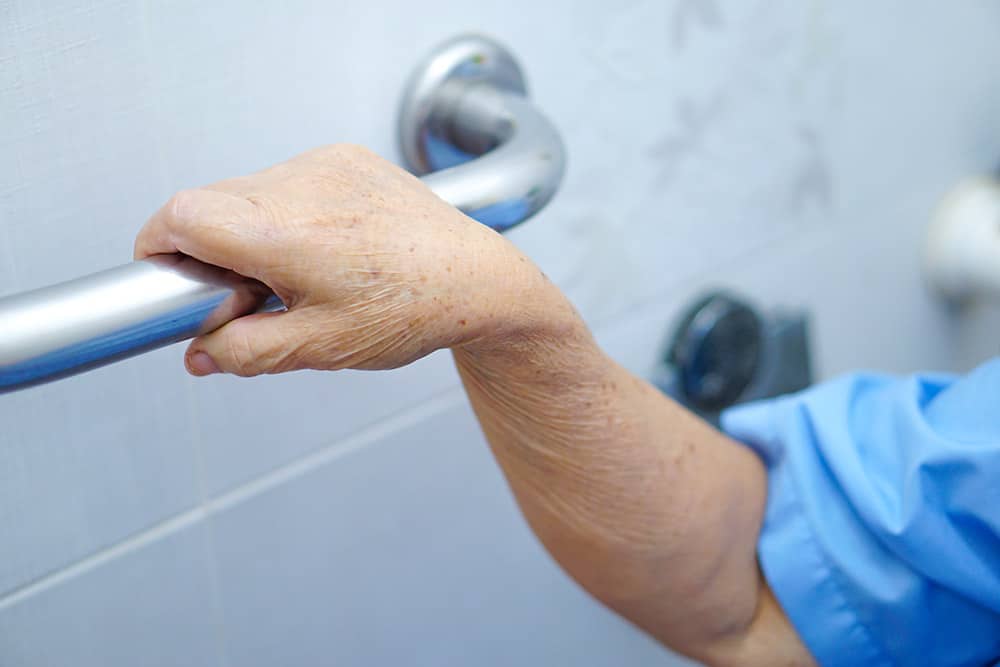23 organisations come together to support call for Secretary of State for Health and Social Care to increase DFG funding

The Home Adaptations Consortium has written a letter to Secretary of State for Health and Social Care Matt Hancock MP pledging for support for an increase in funding for the Disabled Facilities Grant (DFG) in the upcoming March 2020 Budget.
DFGs provide essential financial support for low income elderly and disabled people to adapt their homes to better meet their needs and to support independent living, reduce health risks and prevent care needs.
The lack of accessible homes throughout the UK and reports about councils’ spending on DFGs increasing have constantly made headlines over the last year.
In December 2019, 10 organisations joined together to form the HoME coalition to call on the Government to take greater action to secure suitable housing for older and disabled people and to campaign for more accessible housing.
Additionally, in 2019, Freedom of Information Requests submitted on behalf of A Wood Idea revealed that council funding through DFGs is at a 10-year high, rising from £75,000,000 in 2009/10 to over £100,000,000 in 2018/19, as an increasing number of people use the grants to fund essential adaptations to their homes.
The new letter to Matt Hancock presents an array of statistics around the benefits of DFGs and housing adaptations, why they are cost-effective, the importance of housing adaptations amidst the ageing population and how an increase in DFG funding will support Government aims to provide age-friendly homes.
It notes: “The London School of Economics estimated that for every £1 that is spent on DFGs returns over £2 in health and social care savings and quality of life gains.”
Written by Sue Adams, OBE Chair of the Home Adaptations Consortium, the letter has been signed by 23 organisations which all support the call for an increase in DFG funding.
The signatories are: Action Duchenne, Age UK, Alzheimer’s Society, Anchor Hanover Group, Association of Charity Officers, British Healthcare Trades Association (BHTA), Care & Repair England, Carers UK, Chartered Institute of Environmental Health, Chartered Institute of Housing, Disabled Living Foundation (DLF), R L Glasspool Charity Trust, Habinteg, Leonard Cheshire Disability, Mencap, Motor Neurone Disease Association, Multiple Sclerosis Society UK, National Housing Federation, Papworth Trust, Royal British Legion, Royal College of Occupational Therapists (RCOT), RCOT Specialist Section Housing, and Versus Arthritis.
The letter concludes: “The March budget presents the opportunity to achieve key government objectives through increasing funding for the Disabled Facilities Grant, which in turn will allow local authorities to help more people to live safely, independently and well in their own homes. We very much hope that you will seize this opportunity.”
Read the letter in full below:
Dear Minister,
Congratulations on your re-appointment as Secretary of State. Your personal commitment to prevention and integration across health, social care and housing is greatly appreciated.
We are writing on behalf of older and disabled people to urge you to support an increase in funding for the Disabled Facilities Grant in the forthcoming March 2020 Budget.
The Disabled Facilities Grant (DFG) provides vital support for low income older and disabled people to adapt their homes to better meet their needs. DFG enables people to remain living independently at home for longer, reducing health risks, delaying or preventing care needs, and helping carers to care.
Adaptations are cost-effective. The London School of Economics estimated that for every £1 that is spent on DFGs returns over £2 in health and social care savings and quality of life gains. Conversely, delays in adapting homes place extra burdens on health and care services, as well as putting individuals and carers at risk. The Building Research Establishment estimated that the cost to society from leaving poor housing unimproved was £18.6 billion per year.
An accessible, adapted home can transform the lives of older and disabled people. A recent report from Versus Arthritis found that 95% of people with arthritis who used an aid or adaptation felt they had had a positive impact on their quality of life, and 80% said that they had helped them to maintain their independence.
Many local councils are implementing the DFG admirably at a local level. 85% of councils have adopted local policies that allow them to be more flexible and effective when delivering the DFG. However, with an ageing housing stock, higher numbers of people over 65, an increase in working age adults with long term disabilities, and more families with disabled children, the need for essential home adaptations rises, and so does the required level of funding. Whilst last year’s 8% increase to the DFG budget was most welcome, it still falls short of meeting this need.
Home adaptations are recognised as vitally important in the Prevention Green Paper, whilst making homes ‘age-friendly’ is a key aspect of the Industrial Strategy ‘Healthy Ageing’ Grand Challenge. Given that 80% of the homes people will live in by 2050 already exist, adaptations are an important part of action to address this Grand Challenge, presenting not only a business innovation opportunity but also reducing health inequalities.
The March budget presents the opportunity to achieve key government objectives through increasing funding for the Disabled Facilities Grant, which in turn will allow local authorities to help more people to live safely, independently and well in their own homes. We very much hope that you will seize this opportunity.
Yours sincerely,
Sue Adams, OBE Chair of the Home Adaptations Consortium

